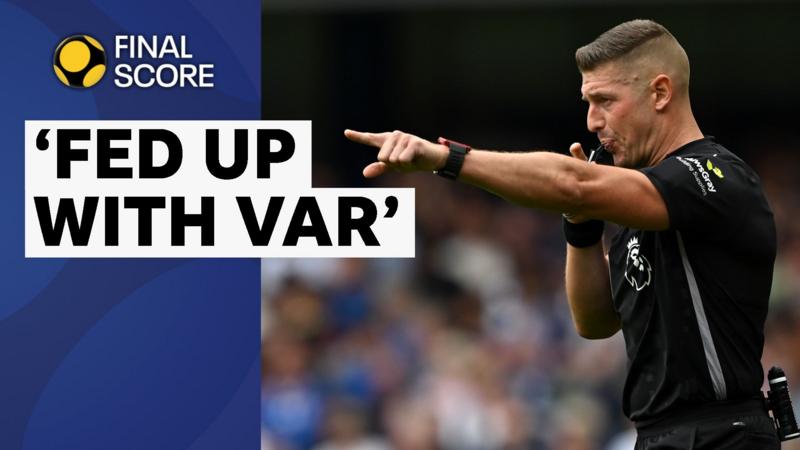VAR Controversy: Warnock Claims "The Game is Going Backwards"




In a recent Premier League clash that kept fans on the edge of their seats, Fulham faced off against Chelsea at Stamford Bridge. Amidst the usual drama that accompanies these fierce matches, there was a particular incident that sparked an extensive debate about the Video Assistant Referee (VAR) system currently employed in the league.
The moment in question occurred when Fulham's Josh King thought he had put his team in front by beautifully slotting the ball past Chelsea's goalkeeper. However, the celebrations were cut short as the goal was subjected to a VAR review for a possible offside in the build-up. Eventually, to the dismay of Fulham supporters and the relief of the home crowd, the goal was disallowed, leaving many questioning the VAR decision's legitimacy and its impact on the game's flow.
Stephen Warnock, a former Premier League defender known for his time at Liverpool, Aston Villa, and Leeds United, weighed in on the controversial call during the BBC's Final Score program. His insights offer a unique perspective, given his professional background and understanding of the nuances of top-flight football.
Warnock highlighted how critical these moments are, not just from a game's perspective but from the standpoint of the league’s appeal and fairness. He dissected the replay, pointing out the minute positional details that led to the VAR's decision. According to Warnock, while the technology aims to bring clarity and fairness, the microscopic scrutiny over every potential goal can detract from the game's natural flow and excitement.
This particular incident reignited the ongoing debate about the use of VAR in football. Since its introduction, VAR has been both lauded for its precision and criticized for how it sometimes saps the spontaneity out of critical moments. Fans and players alike have expressed frustration over the rhythm of the game being disrupted.
During the program, Warnock also explored the broader implications of such decisions. From a player’s perspective, the stop-start nature required by VAR checks can disrupt a team's momentum. For a team like Fulham, every point in the league is crucial, especially when playing against a seasoned team like Chelsea at such a challenging away venue.
Moreover, the incident provided a talking point about the consistency of VAR calls. Debates ensued about similar previous instances where goals were allowed under comparable circumstances. This inconsistency adds to the frustration of fans, players, and even coaching staff, who seek fairness and clarity.
The Final Score panel, including Warnock, agreed that while VAR has brought many positives to the game, there is a significant need for improvement in its application. This includes better communication in the stadium and to the viewers at home about what is being checked and the reasons behind final decisions. These improvements could help in maintaining the integrity of the game while also keeping up with technological advancements aimed at enhancing decision-making.
The Fulham-Chelsea match, with its VAR controversy, serves as a microcosm of the ongoing adjustments and debates surrounding modern football. As technology continues to shape various aspects of the game, the football community is left to adapt and discuss its evolving landscape.
This dialogue, spearheaded by experienced individuals like Stephen Warnock, not only enriches the viewers' understanding but also pushes for advancements in how the game is refereed in the digital age. Fans, players, and officials all have a stake in this evolution, aiming for a future where technology can seamlessly integrate with football, preserving its spirit while ensuring fairness and accuracy in every call.